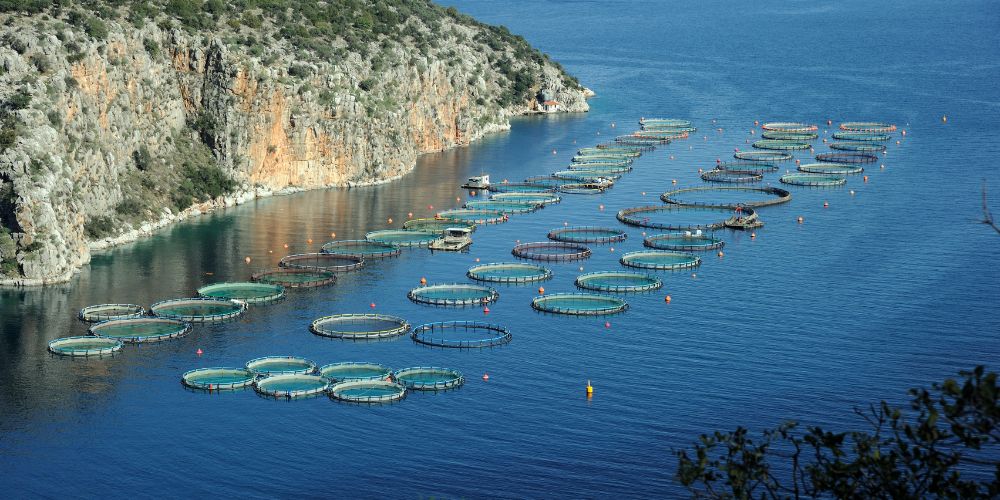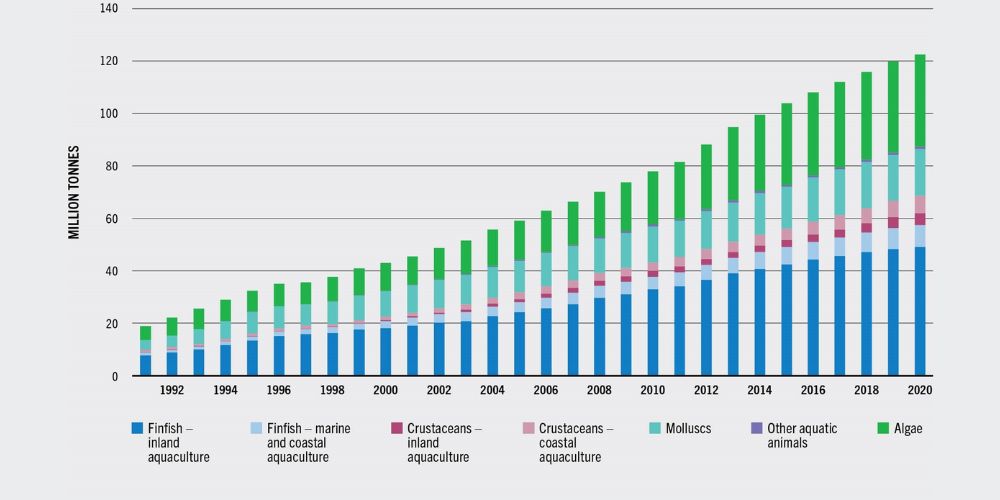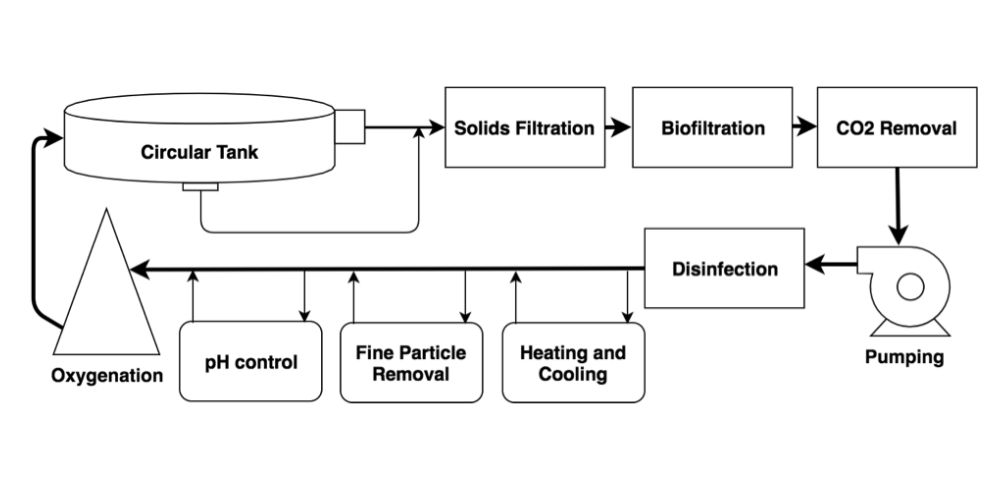
The Future of Sustainable Aquaculture
Posted by Enrico Gennari on September 3, 2024
As human populations increase, food demands shoot up accordingly. Since immemorial, the biological systems and diversity of oceans, covering more than
As human populations increase, food demands shoot up accordingly. Since immemorial, the biological systems and diversity of oceans, covering more than 70% of the land surface, have remained a significant source of nutrition and livelihood for billions of people. Overfishing, habitat destruction, and climate change pose some dangers that may only allow marine ecosystems to exist in written form sooner rather than later.
In this aspect, sustainable aquaculture—producing fish, shellfish, and seaweed in controlled environments—offers great promise for meeting the rising demand for seafood without compromising the ocean's health.
Current Challenges Facing the Aquaculture Industry
The aquaculture industry has been overgrown significantly in the past two decades. It now accounts for nearly half of the world's seafood production. However, this growth has been challenging; key among them include environmental concerns for aquaculture operations, specifically poorly managed ones. On this note, traditional fish farm design may result in water pollution, diseases, and poor wild fish stocks to produce feed.

WORLD AQUACULTURE PRODUCTION, 1991–2020
Source: https://openknowledge.fao.org/
For instance, in some areas, the heavy use of antibiotics and chemicals in fish farming has polluted the local water sources and regularly killed the species being farmed, as well as other marine life. Another issue is that wild-caught fish are used to produce fishmeal and fish oil going into aquaculture feed, putting further pressure on already overfished stocks.
A further severe problem would be that farmed species could escape into the wild and then outcompete or interbreed with a native population; in both cases, this would presumably bring severe disturbances to local ecosystems.
Innovative Practices and Technologies
Despite this, the aquaculture industry is changing as new innovative management practices and technologies are developed and strive to reduce their environmental impacts. These developments focus on pollution, resource use, and ecosystem disruption.
Integrated Multi-Trophic Aquaculture (IMTA): One innovative measure to address this challenge could be Integrated Multi-Trophic Aquaculture (IMTA) systems, where multiple species are reared simultaneously by simulating natural ecologies. For example, fish farming with seaweed and bivalves allows the latter to filter and clean the water by assimilating excess nutrients. It reduces the potential negative environmental impact while creating an alternate revenue stream from diversified products.
Recirculating Aquaculture Systems (RAS): Recirculating Aquaculture Systems (RAS), in which farmed fish swim within land-based tanks and the water is continually filtered and recycled, also hold some promise. RAS reduces water use, reduces disease risk, and prevents species escape, making fish farming more responsible. These systems can be sited close to cities, reducing the carbon footprint of transport, which is associated with sea products.

Source: https://en.wikipedia.org/wiki/Recirculating_aquaculture_system
Open Ocean Aquaculture: Open Ocean Aquaculture is another great tool for sustainable seafood production. It is a fully integrated system that combines heavy-duty submersible pens, intelligent sensors, efficient underwater feeding systems, subsea communications networks, intuitive software, and predictive modeling to optimize fish production in deeper waters. This technology enables healthier fish, robust harvests, reduced environmental impact, and improved return on investment.
Another important innovation in aquaculture is the development of alternative feeds. Scientists are exploring feeds made from plants, insects, and algae to replace fish meal and fish oil, thus easing the pressure on wild fish stocks. These alternatives could also enhance the nutritional profile of aquatic foods.
The Importance of Effective Aquaculture Regulations
Effective regulations that support new practices are indispensable for sustainability. Solid regulatory frameworks set standards for environmental performance, monitor compliance and enforce best practices across the industry.
For example, Norway requires fish farms to monitor and report environmental conditions around their sites, such as the water's nutrient and chemical levels and the farmed fish's health status. These limits have reduced the environmental impact of Norway's aquaculture industry, guaranteeing ocean health.
Due to the international nature of seafood trade, international cooperation is warranted to conduct regulation activity. Some organizations and networks, such as the Food and Agriculture Organization (FAO) and the Global Aquaculture Alliance (GAA), are willing to work together to facilitate international standards and certification programs that promote sustainability industry-wide.
Connecting Aquaculture to Ocean Conservation
Sustainable aquaculture will form part of an ocean conservation plan. It reduces the pressure on wild fish stocks and provides alternative seafood, thus safeguarding marine biodiversity and preventing damage to essential habitats like coral reefs and mangroves. It can also be used to attain restorative practices in ecosystems. As for farmed shellfish and seaweed, there is also a positive effect because they cleanse the water quality by filtering the pollutants and excess nutrients that would cause problems for other marine species living in their environments.
In addition, sustainable aquaculture could provide food security regarding a reliable protein supply. Such production is associated with a lower environmental impact of aquaculture than livestock raising.
The Role of the Oceans Research Institute
Oceans Research Institute (ORI) is at the forefront of advocating for sustainable marine practices, including aquaculture. While ORI does not engage in the production or direct research of aquaculture, it plays a pivotal role as an agent for large aquaculture organizations, championing sustainable practices.
Conclusion
The future of aquaculture, with the mitigation of ocean health impact and the ability to achieve global food security, is bright. The sustainable seafood industry will lead in this endeavor once the existing aquaculture challenges are overcome through innovation and improved regulations to advance the total contribution to ecosystem conservation within ocean waters. The Oceans Research Institute will be supporting such efforts to ensure a sustainable and responsible aquaculture industry.